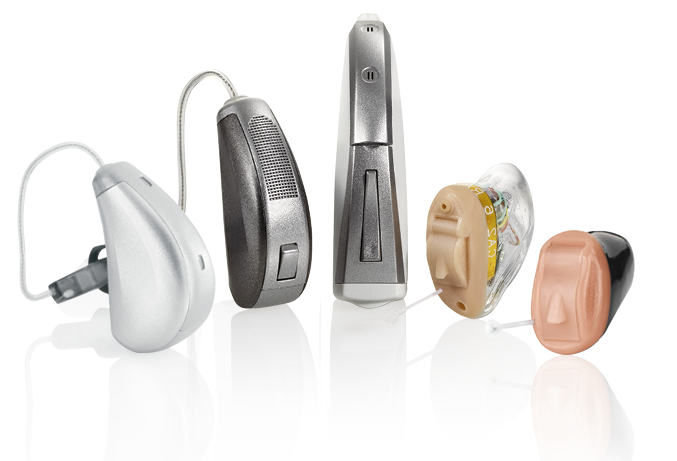
Tinnitus, often described as a ringing, buzzing, or hissing sound in the ears, affects millions of people worldwide. This condition can be intermittent or constant, and its severity can vary from a minor nuisance to a major disruption in daily life.
Understanding tinnitus, its causes, and the available treatment options can help those affected find relief and improve their quality of life. In this blog, we will explore tips and treatment options for living with tinnitus.
Understanding Tinnitus
Tinnitus is not a disease itself but a symptom of an underlying condition. It can result from various factors, including:
- Hearing Loss: Age-related hearing loss or exposure to loud noises can damage the hair cells in the inner ear, leading to tinnitus.
- Ear Infections or Blockages: Earwax buildup, ear infections, or blockages in the ear canal can cause tinnitus.
- Medications: Certain medications, such as high doses of aspirin or antibiotics, can induce tinnitus.
- Health Conditions: Conditions like high blood pressure, cardiovascular disease, diabetes, and thyroid disorders can contribute to tinnitus.
- Head or Neck Injuries: Trauma to the head or neck can affect the auditory nerves, resulting in tinnitus.
Tips for Managing Tinnitus
Living with tinnitus can be challenging, but there are several strategies that can help manage the condition and reduce its impact on daily life:
- Sound Therapy:
- White Noise Machines: These devices produce soothing sounds that can mask the ringing or buzzing of tinnitus. Ocean waves, rainfall, and white noise are common options.
- Hearing Aids: For those with hearing loss, hearing aids can amplify external sounds, making tinnitus less noticeable.
- Stress Management:
- Relaxation Techniques: Practices such as meditation, yoga, and deep breathing exercises can reduce stress and help manage tinnitus symptoms.
- Counseling: Cognitive-behavioral therapy (CBT) can help individuals change their perception of tinnitus and develop coping strategies.
- Healthy Lifestyle Choices:
- Regular Exercise: Physical activity improves blood circulation, which can help reduce tinnitus symptoms.
- Balanced Diet: A diet rich in fruits, vegetables, and whole grains supports overall health and can minimize tinnitus triggers.
- Adequate Sleep: Establishing a regular sleep routine and creating a comfortable sleep environment can improve sleep quality and reduce tinnitus distress.
- Avoiding Triggers:
- Loud Noises: Protect your ears from loud environments by wearing earplugs or noise-canceling headphones.
- Caffeine and Alcohol: Limiting the intake of caffeine and alcohol can help reduce tinnitus severity for some individuals.
- Support Systems:
- Support Groups: Joining a tinnitus support group can provide a sense of community and shared understanding, which can be comforting and empowering.
- Family and Friends: Communicating openly with loved ones about your condition can help them understand your challenges and offer support.
Treatment Options for Tinnitus
While there is no cure for tinnitus, several treatment options can help manage the condition effectively:
- Hearing Aids:
- Amplification Devices: Hearing aids can be particularly beneficial for those with hearing loss, as they amplify external sounds and make tinnitus less noticeable.
- Sound Therapy Devices:
- Masking Devices: These are worn like hearing aids and produce a constant low-level noise to mask tinnitus sounds.
- Customized Sound Therapy: Some devices can be programmed with specific sounds tailored to the individual’s tinnitus frequency.
- Medications:
- Antidepressants and Antianxiety Medications: These can help manage the emotional and psychological impact of tinnitus.
- Medications for Underlying Conditions: Treating conditions such as high blood pressure or thyroid disorders can reduce tinnitus symptoms.
- Therapeutic Approaches:
- Cognitive-Behavioral Therapy (CBT): CBT helps individuals change their perception of tinnitus and develop coping strategies.
- Tinnitus Retraining Therapy (TRT): This combines sound therapy with counseling to help individuals habituate to tinnitus and reduce its impact.
- Alternative Treatments:
- Acupuncture: Some individuals find relief from tinnitus symptoms through acupuncture.
- Herbal Supplements: Supplements such as ginkgo biloba and zinc have shown potential benefits for some tinnitus sufferers, though more research is needed.
Consult the Best Audiologist at SPees in Sambhaji Nagar
If you are experiencing tinnitus, consulting an experienced audiologist can provide you with a personalized treatment plan. SPees Early Intervention Center in Sambhaji Nagar offers expert audiologists who specialize in diagnosing and managing tinnitus. They use state-of-the-art diagnostic tools and provide tailored treatment options to help you find relief.
At SPees, you can expect compassionate care and comprehensive support throughout your tinnitus management journey. From sound therapy and hearing aids to counselling and lifestyle recommendations, the team at SPees is dedicated to improving your quality of life.
Tinnitus can significantly impact daily life, but with the right strategies and treatment options, it is possible to manage the condition effectively. By understanding tinnitus, adopting healthy lifestyle choices, and seeking professional help from audiologists at SPees in Sambhaji Nagar, you can find relief and enhance your well-being.
Don’t let tinnitus control your life, take the first step towards better hearing and a brighter future today.

